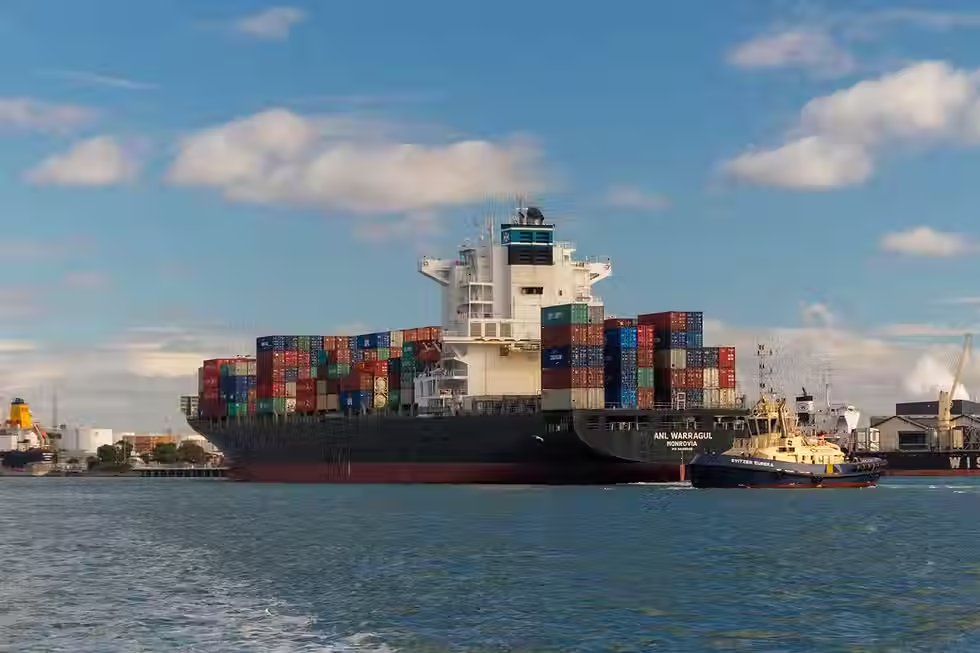Export Licence Singapore: Simplified Steps for Small Businesses
- declarationnexus
- Sep 20, 2024
- 3 min read
Updated: May 6, 2025

To improve their performance in the international business environment, small companies in Singapore must know how to export goods. The foremost undertaking is obtaining an export licence in Singapore. It may seem quite difficult, but it does not have to be. In fact, it has been made rather easy in Singapore, and if certain basic principles are in place, you will be well on your way to having your products sent out of the country.
In this complete guide, we will help you through every step of the procedure. There are some straightforward procedures that will assist you in exporting if you are a beginner or need some compliance reassurance. Come on! Time is of the essence and we shall explain what should be given attention to.
What is an Export Licence in Singapore?
An export licence is the official permission that business holds to export certain items from the country. It does concern where and how to ship - as much as how to ship and will all the uplifts be allowable. That is where Singapore Customs steps in, as they are the ones who give out these licences.
An export permit may also be known as export registration prior to the effective exercise of the customs control over the goods specified. Attempting to ship items even moderately regulated or ordinary requires compliance. export licencing.
Stage 1: Register and Obtain the Unique Entity Number (UEN) of Your Company
The very first stage in exporting from Singapore is registering the business at the Accounting and Corporate Regulatory Authority (ACRA). After successful registration, a Unique Entity Number (UEN) is provided. Afterward, activate your customs account with Singapore Customs. This is crucial for making any import or export declarations through the TradeNet system, which is used for permit applications.
Step 2: Appoint a Declaring Agent

Businesses can either handle the export process themselves or appoint a declaring agent. A declaring agent is a third-party service that assists with certain document filing and permit applications. Such steps can be performed by you, however, smaller companies prefer to contract one as a matter of convenience and risk mitigation.
Step 3: Apply for Customs Export Permits
Once you’ve registered and appointed a declaring agent (if needed), the next step is applying for a customs export permit. This is done through the TradeNet system. You’ll need to provide important documents such as the commercial invoice, shipment details, and a description of the goods you’re exporting. It’s also important that these are correct to avoid delays or rejections..
Step 4: Verify Export Restrictions and Obtain Required Documents
Before you ship anything, check if there are any restrictions on your goods. Some items may need additional permits, like strategic goods or controlled items. It has also been observed that for certain products, support which includes certificate of origin, would be required. Before engaging in any product export, it is necessary to check if all relevant documentation is available first.
Types of Goods Requiring Permits and Documentation
Not all goods require the same permits. Controlled goods, like electronics or chemicals, need special approval before export. Dutiable goods, such as tobacco or alcohol, incur customs duties. For Zero-GST goods, a permit is needed to exempt them from tax. Every type of product export has specific documentation and procedures; therefore it is necessary to know the details on the items you intend to export.
Key Considerations for Small Businesses
Register for a TradeNet user ID: You'll need this to access the system for permit applications.
Ensure all documents are accurate: Double-check details like invoices and shipment info to avoid delays.
Understand the fees: Permit processing costs S$2.88, so budget accordingly.
Know checkpoint procedures: Familiarise yourself with customs checks when exporting goods.
Get help if needed: Declaring agents can simplify the process for small businesses.
Final Thoughts
Although looking to obtain an export licence in Singapore can be an unnerving proposition as it typically is for most small businesses. There are correct steps to take and ensure all documents are stationary to prevent any grievance. Even when the situation appears intimidating, you may consider obtaining agent services who will help you meet the prevalent export regulations and make the process easy and efficient.




